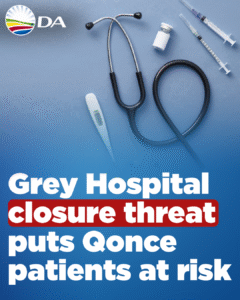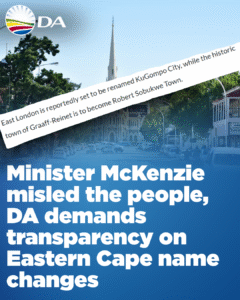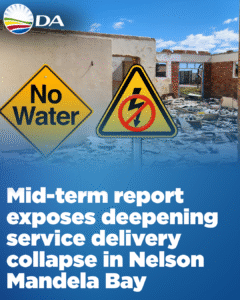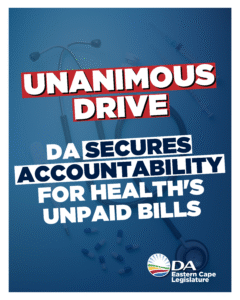The latest Quarterly Labour Force Survey (QLFS) for Q1 2025 confirms the Eastern Cape’s worsening economic crisis, with sharp job losses and rising unemployment across key sectors such as agriculture, tourism, and manufacturing.
The official unemployment rate in the province has risen to 39.3%, up from 36.6% in Q4 of 2024, while the expanded unemployment rate now sits at a staggering 49%, the second highest in the country, behind the North West province.
This means that nearly half of all working-age people in the Eastern Cape either cannot find work or have given up trying. The stats show that 83,000 people in the Eastern Cape lost their jobs in the first three months of 2025.
Every job lost is not just a statistic. It is a child going to bed hungry, a parent forced to choose between food and electricity, and a growing sense of hopelessness that is taking root in communities across the Eastern Cape. As the crisis deepens, more families are being pushed from survival into despair.
The automotive sector, a cornerstone of the Eastern Cape economy, remains under pressure. Mercedes-Benz South Africa has already downscaled operations at its East London plant, moving from a three-shift to a two-shift production model due to declining global demand and port inefficiencies.
In agriculture, job losses have mounted amid rural infrastructure decay, rising input costs, and unreliable market access. Without urgent investment in enabling infrastructure and market access support, rural livelihoods will continue to erode.
Tourism continues its decline, with reduced seasonal employment and falling bed occupancy in key destinations. Failing infrastructure, safety concerns, and a complete lack of strategic marketing undermine one of the few labour-intensive sectors accessible to the youth and informal entrepreneurs.
Also deeply concerning are the recent tariff hikes announced by the United States, with a 30% general tariff on South African goods and a 25% tariff on vehicles and automotive components. These changes, along with the likely erosion of AGOA benefits, threaten export volumes, investor confidence, and long-term viability across all sectors of our provincial economy.
A job is more than income, it is hope for the future, security and dignity. This is why the DA’s primary focus, and the DA’s most important policy agenda in the GNU is to facilitate economic growth for all South Africans, and to do everything we can to foster job creation. The DA-governed Western Cape’s unemployment rate remained steady at just 19.6%, the lowest in South Africa. While the Eastern Cape was shedding jobs, the Western Cape created jobs for an additional 49,000 people.
The ANC’s economic rhetoric no longer holds up against the reality faced by families in this province. Without urgent, strategic intervention, these job losses will not only persist but accelerate.
Where the DA governs, we see practical, proven policies delivering results. Infrastructure is maintained, public services function, and jobs are created.
The Eastern Cape deserves that same energy and focus. We cannot continue to lose jobs in silence. We must turn the tide and restore the people of the Eastern Cape‘s hope for a better future.









